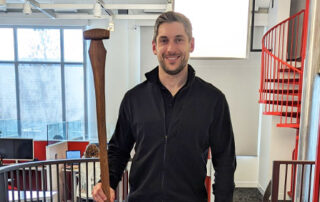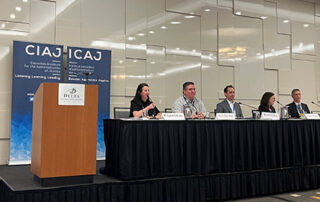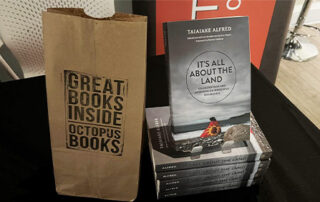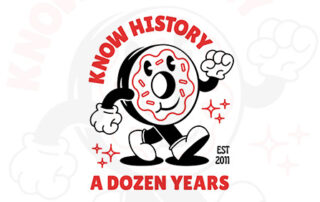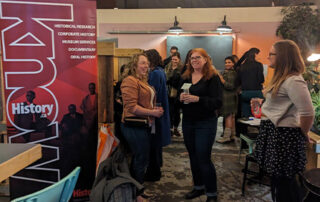Recent news
Know History welcomes Elizabeth Todd Doyle
We are very excited to announce that Elizabeth Todd Doyle has joined Know History. Elizabeth has more than 25 years’ experience in the museum and heritage fields in Ottawa and on the west coast.
Congratulations to the Sault Ste. Marie Métis Council
The Historic Sault Ste. Marie Métis Council (HSSMMC) has been awarded $200,000 from the Museum Assistance Program - Indigenous Heritage Grant, funded by the Government of Canada.
History Insights – Dr. McIvor
History Insights is a platform for big ideas that incite change. We welcome speakers that challenge our understanding of the past and how it affects our present.
Newsletter Special Edition – Truth and Reconciliation
We have a shared responsibility to learn the truth about Canada’s residential school system and the decades of pain and suffering it has created. This weeks edition of the KIH newsletter shares a few of the many educational resources available.
Orange Shirt Day
This September, as we reflect on the immense loss and grief caused by Canada’s residential school system, we are also looking for ways to support the ongoing process of healing and truth telling.
Know History Graduate Scholarship for Indigenous Students
Know History established a $50,000 endowment at Carleton University to create a scholarship that will be awarded annually to an Indigenous student entering a Master’s degree program in either the Department of History or the School of Indigenous and Canadian Studies.
KH’s Tenth Anniversary – Top 10
September 6, 2021 is our 10-year anniversary! To mark this milestone, we will be releasing KH Top 10 Lists in the week leading up to our celebration.
Kahnawà:ke Oral History Project
We are very excited to undertake a pro-bono project with the Mohawk Council of Kahnawà:ke and the Kanien’kehá:ka Onkwawén:na Raotitióhkwa Language and Cultural Center to gather, record and share the oral histories of Kahnawà:ke elders.
Renaming and Reconciliation
Thank you to everyone who joined us on August 17 and August 19 for the "Renaming and Reconciliation" webinar. Over 500 people registered for this important discussion.
Know History at Historic Calgary Week
Our Calgary team had a great week participating in Historic Calgary Week hosted by Chinook County Historical Society. We attended online and in person events around the city and presented at two seminars.
Recent news
Know History receives a special paddle
The Know History team in our Calgary office was thrilled to receive a specially commissioned paddle crafted, painted, and carved by artist Bre-Anna Beavan in collaboration with the Northern Cultural Expressions Society (NCES).
Decolonial Archival Futures Debut
We’d like to extend a heartfelt thank you to everyone who joined us in commemorating the debut of "Decolonial Archival Futures," the latest book co-authored by Skylee-Storm Hogan-Stacey and Krista McCracken!
Symposium on Indigenous Courts
Know History was proud to be a major sponsor of CIAJ-ICAJ / Can. Institute for the Admin. of Justice / Institut can. d'admin. de la justice Symposium on Indigenous Courts.
It’s All About the Land Book Launch
Know History hosted a book launch party to celebrate the release of Taiaiake Alfred's It's All About the Land.
A dozen years of Know History
A dozen years of Know History! This year marks Know History’s 12th anniversary, and we wanted to thank you all for years of collaboration, innovation, and the most incredible experiences in historical research.
History and Heritage Networking Night
For us, history is about making connections – and we were delighted to connect with all of you at our annual History and Heritage Networking Night!












